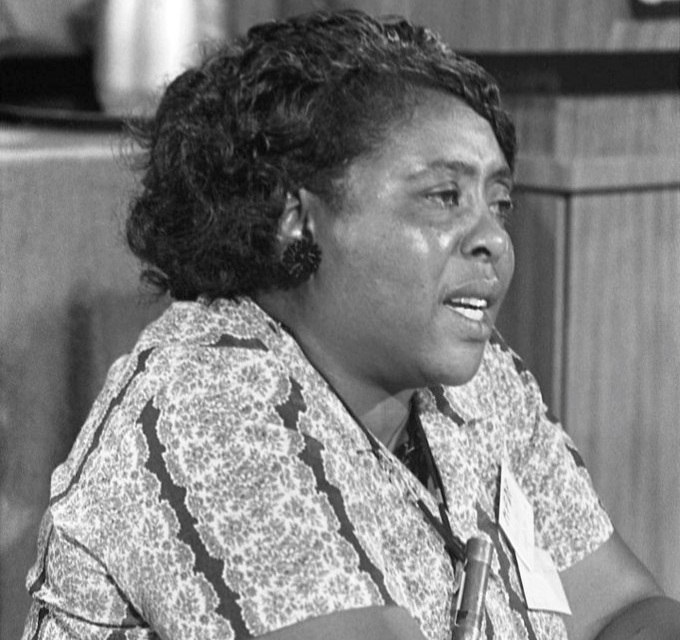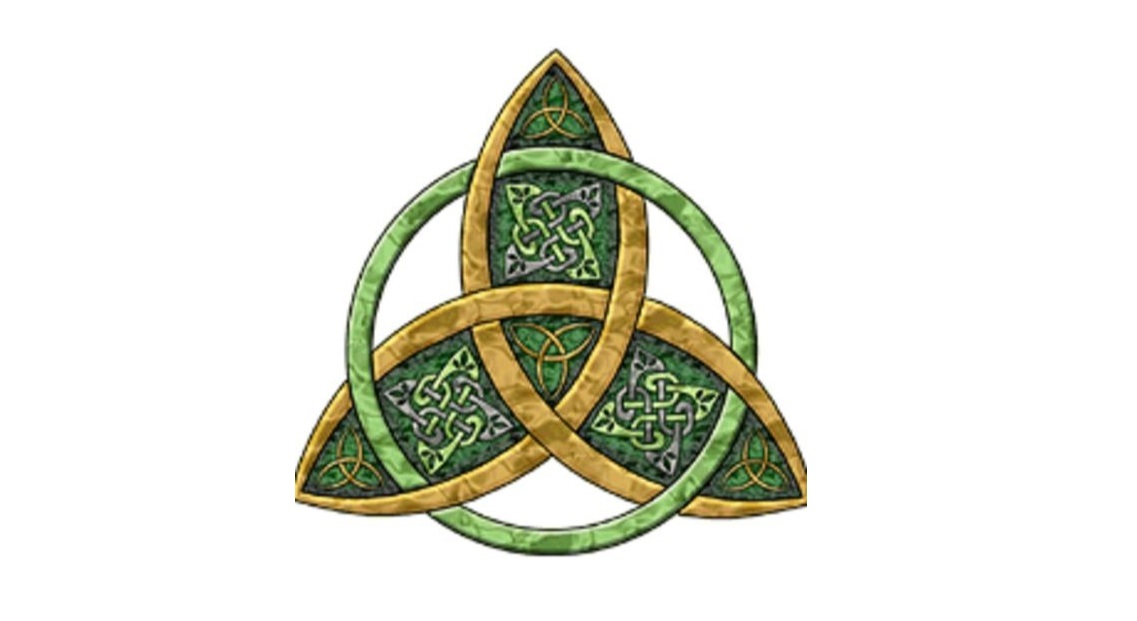Human Suffering
God’s Goodness Despite Human Suffering
Photo credit: Unknown | CC0, Pxhere.
Introduction
Human suffering poses an emotional and intellectual challenge. How does a good God relate to human suffering? If suffering is evidence of human failing — in not just a personal, but a primordial, sense, such as the biblical story of the fall — what hope is there for relief and healing? However, Jesus reveals a God who suffers because of the primordial failing. So all of our human suffering, whether we acknowledge it or not, happens because we are participating in God’s own suffering, fractally. Jesus invites us to more fully partner with him in his own unique, personal suffering for the broken world that he is setting aright.
Conversation Stations
These are the images used in artistic physical displays. They are survey questions and conversation starters that are topically and thematically organized. They demonstrate how Jesus is relevant to each topic or theme. You can also just view the images on your device. If you would like, see all our Conversation Stations; below are the ones that relate to the topic of Suffering.
What Can We Do About Evil? (and instructions and conversation tree)
What Can We Do About Evil? (brochure version)
Whose Justice? (and instructions and Christian Restorative Justice Study Guide)
How Much of an Atheist Are You? (and instructions)
What Story Do You Live In? (and associated message)
Does the Good Outweigh the Bad? (and instructions)
Messages and Resources on God’s Goodness Despite Human Suffering
Is There Meaning in Suffering? A Comparison of Karmic, Christian, and Atheist Views
A short comparison of how suffering is interpreted in the Karmic view (caused by individual, redemption by individual), Christian view (caused by humanity, divine-human partnership in redemption), and Atheist view (caused by nature, redemption is questionable).
Where is God in Pain, Especially Mine?
Text and slides of message about God being not behind your pain, with you in your pain, and ahead of your pain pulling you through it. Jesus is central to the experience of pain because he is the one who fully transformed pain so he could bless others in resurrection life, as opposed to passing on the pain to others, since “hurt people hurt people.”
We Suffer Because We Already Participate in God’s Suffering (TBD)
God's Transformation of Our Suffering in Jesus (TBD)
"How Long, O Lord?" vs. "Why Did You Allow This?": Reflecting on the Accuracy and Helpfulness of Two Common Cries (TBD)
Images of God in a Broken World
The following three messages were given at a weekend retreat. Images of God in a Broken World is the first; it explains why, in a broken world, we get the impression that if there is a “god,” that “god” is evil, at least partially. Jesus is the Image of God is the second; it is an explanation of Colossians 1:15 - 20, how Jesus is the accurate and perfect image of God despite our broken world, because he healed human nature in himself via his life, death, and resurrection. In Jesus, We Are God’s Image Bearers is the third; it is from Colossians 3:5 - 4:6, about how Jesus renews the image of God in us by his Spirit, to share God's goodness in a broken world.
Evil and the Christian God and Theology of Atonement
This paper explores how the character of God drives the type of story one lives in, and the type of atonement required to be consistent.
This is a shorter version of the paper above.
Why God "Maximizes" Opportunities for Love and Faith, and Doesn't Minimize Suffering
A short reflection on how God made us with the power to choose, and why: God made us to participate in His love via trust and faith.
Suffering and the Sovereignty of God's Word
A longer paper explaining how Scripture portrays God as acting by speaking, which is why God is only responsible for that which He has said. Meanwhile, God aims to heal the suffering of human nature in Jesus and by the Spirit. This means God is not causing human suffering.
Big Questions About God: Contrasting Early and Reformed Theologies
Workbook style, with quotes and questions to help you compare, contrast, and discuss. The differences are enormous, and deeply relevant.
Why Did God Choose a "Chosen People"? Why Not Just Skip Right to Jesus?
An important question when considering suffering and the role of human partnership with God
Suffering Generally: Three Types of Pain from the Story of Jacob
Text of a message on Genesis 25 - 35 which explores the story of Jacob as archetypal. There is the pain of living in a broken world. There is the pain of your own choices. Then there is the pain God causes when He calls you to repent and grow with Him.
Suffering in Unique Cases: The Unique Roles of Job, Israel, and Jesus
This paper explores why the suffering of Job, Israel, and Jesus were unique.
Suffering in Unique Cases: Job's Suffering and God's Response
Text and slides of a message on the Book of Job exploring God's response to Job as winning, not bullying, back into partnership. God corrects Job's earlier death wishes. God asserts He cares for all living things and is the midwife to every birth.
God's Participation in Our Suffering in Jesus: The Emotions of God - Tears
This is a small group discussion on John 11:20 - 44, Jesus' angry tears over Lazarus' death. See also slides. It is part of two larger series: one on The Emotions of God and the other on John's Gospel.
Big Questions About God: Contrasting Early and Reformed Theologies
Workbook style, with quotes and questions to help you compare, contrast, and discuss. The differences are enormous, and deeply relevant.
Why Question Atheism from a Political, Historical, and Moral Perspective?
This is a presentation surveying the origins of modern Atheism, as connected to nation-building and Enlightenment political philosophies: racist liberal democracy and Marxist collectivism.
Desires, Beliefs, and How We Know Truth
This is a presentation on how desires are a consideration, but not the first, in how we know truth. Our desires suggest that we have both good and evil in us. This does not prove, but agrees with, the biblical story. After all, we are made in the image of God and wounded by sin. Some desires can be taken up and expanded by Jesus; other desires, Jesus reshapes or transforms. Also, belief systems have an implied story and metaphysics, which results in an ethics, and contains an epistemology, which is a way by which we can examine whether it is true. A 15 minute read.
Other Christian Resources on God’s Goodness Despite Human Suffering
Anthony Hughes, Ancestral Versus Original Sin: An Overview with Implications for Psychotherapy. St. Mary Orthodox Church. Hughes presents a helpful explanation between the Eastern "corrupted nature" view of the fall, against the Augustinian-Western "inherited guilt" view, and spells out some practical implications for counseling and therapy
Centre for Public Christianity, Suffering and Evil (Centre for Public Christianity website)
David Bentley Hart, The Doors of the Sea: Where Was God in the Tsunami? (Amazon book, Jun 20, 2005) Hart is an American Orthodox theologian and philosopher. After the Asian Tsunami, he wrote four short, excellent articles for the Wall Street Journal, which were later compiled into this book. They especially contrast the high federal Calvinist approach with the Eastern Orthodox. If you can't get this book, read these two articles which have been made available on line: Tremors of Doubt, and, Tsunami and Theodicy
C.S. Lewis, The Problem of Pain (Amazon book, 1940) Lewis' book is a good preliminary for anyone wrestling with this topic. He ascribes a bit too much to divine causation as opposed to divine redemption, which he corrects in his book, A Grief Observed (Amazon book, 1961). Lewis wrote this after his beloved wife Helen Joy died of bone cancer.
Terence E. Fretheim, The Suffering of God: An Old Testament Perspective (Amazon book, 1984) an excellent study; significant overlap with my paper Suffering and the Sovereignty of God’s Word.
Henri Nouwen, In the Name of Jesus: Reflections on Christian Leadership (Amazon book, 1993) “Power offers a toxic substitute for the hard task of love. It seems easier to be God than to love God, easier to control people than to love people, easier to own life than to love life.”
William Paul Young, The Shack: Where Tragedy Confronts Eternity (Amazon book, 2007) A beautiful, fictional story of a man who meets God in the shack where his daughter was kidnapped and murdered.
Susan Cooke Kittredge, We All Need Mending (NPR, Feb 3, 2008)
Kim Phuc, The Long Road to Forgiveness (NPR, Jun 30, 2008)
David Bentley Hart, Suffering and the Problem of Evil (video, Feb 25, 2010)
Eleonore Stump, The Problem of Suffering (video, Jul 6, 2010)
Richard Shumack, The Mystery of Suffering: Christianity and Islam on Suffering (Centre for Public Christianity, Aug 28, 2010)
Melissa M. Kelley, Grief: Contemporary Theory and the Practice of Ministry (Amazon book, 2010) a helpful resource from clinical, academic, and pastoral perspectives
Kent Annan, Aftershock: Searching for Honest Faith When Your World is Shaken (Amazon book, Feb 3, 2011) Annan, who has long worked and ministered in Haiti, wrote this after the devastating Haiti earthquake.
Dean Stroud, Don't Count Out Faith and Survival (LaCrosse Tribune, Jul 22, 2012)
Robert P. Jones, Mourdock, God’s Will, and Rape: How Americans Really Think About God and Public Policy. PRRI, Oct 26, 2012.
“Earlier this week, Indiana Senate candidate Richard Mourdock, a Tea Party favorite who ousted veteran Senator Dick Lugar in the primary last spring, spurred yet another firestorm of debate when he declared that pregnancies conceived in rape are “something that God intended to happen.” […] According to a survey conducted by Public Religion Research Institute last year, most Americans (56%) agree that “God is in control of everything in the world,” while 34% disagree and 8% say they do not believe in God. Among white evangelical Protestants, this number rises to 84%, with only 15% in disagreement.”
Jeffrey Wright, A Unique Teacher Imparts Real Life Lessons (youtube video, NY Times, Dec 28, 2012)
Timothy Patitsas, The Opposite of War is Not Peace (Road to Emmaus, Winter 2013) a helpful article from an Orthodox perspective critiquing Catholic-Protestant “just war” theory as pastorally incomplete, from the perspective especially of traumatized veterans. Patitsas discusses moral injury, grieving, and recovery through embodied participation in community, which starts with Christian liturgy
Kevin Brown, Three Theologians on Theodicy: Irenaeus, Augustine, and Jurgen Moltmann (Diglotting blog, Mar 26, 2013) a helpful start
Dorothy Greco, The Strange Goodness of Good Friday (Relevant Magazine, Mar 29, 2013)
Eleonore Stump, Wandering in Darkness: Narrative and the Problem of Suffering (Amazon book, 2013) Stump is a Catholic philosopher, specializing in Thomas Aquinas, who focuses on many biblical passages dealing with God and human suffering. She is a thoughtful and insightful reader. Her book is a very substantial work.
David Bentley Hart, An End to All Endings (video, Sep 1, 2013)
Rebecca Savastio, KKK Member Walks up to Black Musician in Bar-but It’s Not a Joke, and What Happens Next Will Astound You (Las Vegas Guardian Express, Nov 20, 2013)
Kellie "Red", 11 Years Old, and Celebrating Therese's Birthday for the Very First Time (Patheos blog, Nov 24, 2013)
Ken Walker, 'World’s Ugliest Woman' Proves That Jesus Makes All Things Beautiful (Charisma News, Dec 31, 2013)
What This Dying Man Has to Say About His Life Will Give You Incredible Hope (GodVine video, Jan 1, 2014)
David Skeel, True Paradox: How Christianity Makes Sense of Our Complex World (Amazon book, 2014)
Brandan Robertson, Jesus Isn't Going to Take My Zoloft (Patheos, Aug 12, 2014)
Vinoth Ramachandra, Goodness in Evil Times (blog, Aug 23, 2014)
N.T. Wright and Miroslav Volf, Theology of Joy (video, Sep 24, 2014), excellent reflections on suffering, emotions as well
Barton Swaim, How Christianity Explains Suffering and Beauty (Wall Street Journal, Nov 21, 2014)
Dargan Thompson, If God is in Control, Why Does Bad Stuff Keep Happening? N.T. Wright on the Good News (Relevant Magazine, Jan 20, 2015)
Bob and Helga, “It Was the Will of God”: Why This Statement May Not Offer Comfort in the Face of Suffering (God as Love blog, Jan 25, 2015)
David Gelernter, Why Should a Jew Care Whether Christianity Lives or Dies? (First Things, Mar 24, 2015)
Rabbi Evan Moffic, Where Was God in Nepal? (Huffington Post, Apr 27, 2015)
Vinoth Ramachandra, God and Natural Disasters (blog, Apr 28, 2015)
Annalaura Montgomery Chuang, Formed by War: Combat Wounds the Soul, but the Gospel Offers Hope (Christianity Today, May 26, 2015)
Daniel Kang, The Trial of God (Harvard Ichthus, May 27, 2015)
Cathleen Falsani, To Let It Go and So To Find a Way: U2, Alive With Grief and Grace (Religion Dispatch, Jun 3, 2015)
Greg Boyd, Why Doesn't God Heal When We Ask? (ReKnew blog, Jul 15, 2015)
Robert Barron, Stephen Colbert, JRR Tolkien, and the Providence of God (Word on Fire, Aug 25, 2015)
Susan Donaldson James, Lizzie Velasquez: 'Ugliest woman' Video Changed My Life for the Better (Today, Aug 31, 2015)
Fr. Richard Rohr, You Need a Big Storyline (blog, Oct 6, 2015)
Mariel Klein, The Harvard Condition (Harvard Crimson, Oct 8, 2015)
D.L. Mayfield, The Brutally Honest Christmas Card (D.L. Mayfield blog, Dec 9, 2015)
John Jessup, Famous Gospel Artists Shares the Secret He Hid from the Church (CBN News, Feb 18, 2016)
Michelle Boorstein, What Happens When the Military Chaplain is Shaken by War? (Washington Post, May 29, 2016)
Jason Micheli, If There’s a Reason for Everything, There’s No Reason to Worship (Tamed Cynic, Jun 3, 2016)
Rod Dreher, On Time: Arrival (The American Conservative, Nov 24, 2016)
Nonna Verna Harrison and David G. Hunter, Suffering and Evil in Early Christian Thought (Amazon book, 2016)
Katie Jo Ramsey, God Made Our Brains to Need Others (Christianity Today, Oct 2017) both science and Scripture invite us to share our suffering
Shane Clifton, Crippled Grace: Disability, Virtue Ethics, and the Good Life (Amazon book, Feb 9, 2018) and a review by Jason Micheli, Disability and the Good Life (Christian Century, Mar 14, 2019)
Greg Boyd, Satan and the Corruption of Nature: Seven Arguments (ReKnew, Jul 29, 2019) an interesting position which is theoretically possible, though it is also possible that “nature” should be considered to be a self-giving system that images the Creator God who overflows abundantly. Boyd also does not consider why all the “evolutionary dead-ends” requires a theological assertion of God’s superabundance.
Anderson Cooper, Full Interview of Stephen Colbert (CNN, Aug 14, 2019) from 20 min mark, explores grief, loss, gratitude, and God’s love
Philip Yancy, Living in Plague Times (Philip Yancy blog, Mar 24, 2020) “I’ve studied every biblical passage related to suffering, and concluded that we receive little guidance from the Bible on the Why? questions. Job’s friends, who thought they had the answer, were smartly rebuked by God. For his part, God managed to evade the question in his longest recorded speech, at the end of the Book of Job. Centuries later, when the Pharisees or Jesus’ disciples proposed neat answers by blaming victims for their plight, Jesus refuted them; yet he too gave no real answer to the Why? questions. Two things, however, I believe with near certainty. First, we live on a broken planet that displeases God as much as it displeases us… My second belief follows from the first: God is on the side of the sufferer.”
N.T. Wright, Christianity Offers No Answers About the Coronavirus. It's Not Supposed To (Time, March 29, 2020) although I would push one step further to say that God, through Jesus, is resolving the vulnerability behind the vulnerability, the disease behind the disease. See also Mike Cope, N.T. Wright: God and the Pandemic (Pepperdine Church Relations, Jun 26, 2020)
Gravity Leadership, Matt Jantzen: How the Doctrine of God’s Providence Was Shaped by Whiteness (Gravity Leadership, Jun 8, 2021) very important observations on how white Christians feel comfortable saying, “God sent that earthquake to Haiti” but trembled with disbelief at European suffering in WWII: “God is dead.”
Mark Schwehn, Plague Theology (Current, Aug 5, 2021) on eco-catastrophes being rooted in a self-inflicted wound. “So the old theological interpretation of natural catastrophes was perhaps at least half right. We are being punished for our sins against the environment, against one another, and against God. But the punishment is self-inflicted, not divinely sanctioned and imposed. If, as some strains of biblical theology would have it, humankind was placed at the pinnacle of creation to have dominion over it and to take care of it, we can say with some certainty that we are suffering the consequences of continuing misrule.”
Makoto Fujimura & Haejin Shim, Beauty, Art & Justice. Holding Up the Ladder, Sep 22, 2023. “We talk about the ways in which beauty, art and justice intersect. Can beauty be found in justice, can art be used as an instrument for justice? What does justice really mean? We talk about faith and beauty. Beauty not as perfection, it’s not cosmetic - but beauty as a journey - a journey into the new. And we can’t talk about beauty without talking about sacrifice and suffering - suffering that leads to what Mako calls ‘generative love’.”
John Andrew Bryant, A Quiet Mind to Suffer With: Mental Illness, Trauma, and the Death of Christ. Lexham Press | Amazon page, 2023. “This is the story of Christ’s nearness to my own suffering―my mental breakdown, my journey to the psych ward, my long, slow, painful recovery―and how Christ will use even our agony and despair to turn us into servants and guests of the mercy offered in his gospel. We cannot answer suffering. And yet suffering demands an answer. If Jesus is the answer to suffering, what kind of answer is Jesus? Everything that could be taken from a person was taken from him. The worst things a person could be made to see and feel were seen and felt by Christ. All of this came to a point in the nails driven into his hands and became a word that cannot be unspoken―his body broken and his blood poured out for us. Suffering has been made holy by Christ’s proximity to it.”
Mia Chung-Yee, Beethoven, Faith, & Suffering: A Musical Journey. Veritas Forum, Mar 20, 2025. Mia Chung-Yee is a concert pianist and Beethoven scholar. She “takes us on a musical journey through the life of one of history’s greatest composers. You’ll hear from Mia Chung-Yee, an accomplished musician and faculty member at the Curtis Institute of Music. In this lecture and performance, she tells the story of Beethoven’s struggle with deafness and explores the connection in his music between suffering and faith. This forum was held at the University of Michigan in 2016.”
Suffering: Topics:
This section on Suffering is organized in the following way: Suffering and God contains explanations of Scripture and God’s goodness and activity, and African American Faith embodies a deep, living Christian tradition of resistance to human evil and hoping in God. Grieving highlights resources for healthy grieving, both biblical and otherwise. Mental Health spotlights how Jesus and our experience of him intersect with various mental health needs. Church and Shoah is about Christians who were for and against Nazi Germany; it is drawn from our Church and Empire resources; we place it here because of how often people raise it as a question connected to human suffering. General Reflections highlights other resources that may not be Christian per se, but are thoughtful and helpful to consider.
God’s Goodness: Topics:
Here’s how to navigate this section on God’s Goodness. The Introduction focuses on the biblical presentation of Father, Son, and Holy Spirit; and the implications. Human Becoming spotlights creation and humanity, especially how God made humans as human beings and human becomings. Israel tackles big questions about why God needed an Israel, why God took human life to protect Israel’s vocation. Jesus explains God revealing Himself fully in Jesus, and addresses Protestant notions of limited atonement and double predestination as incompatible with God’s Triune character of love. Holy Spirit explores the divine person of the Spirit and the gifts of the Spirit. Human Destiny explains how desire and development are part of the outworking of human becoming, destiny, and God’s goodness. Divine Fire explains why the portrayal of divine fire in Scripture is always God’s call to participate in refinement and purification. Human Evil explains why God is good by solving the problem of human evil in a loving way. Human Suffering explains why God is good because He suffers with us since the fall, and heals the deepest suffering behind the suffering.
















